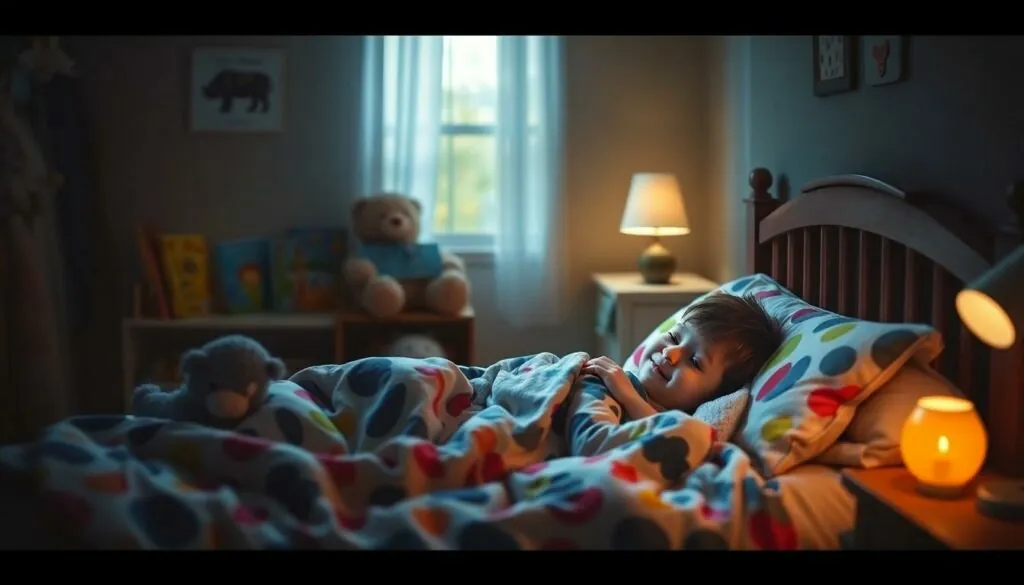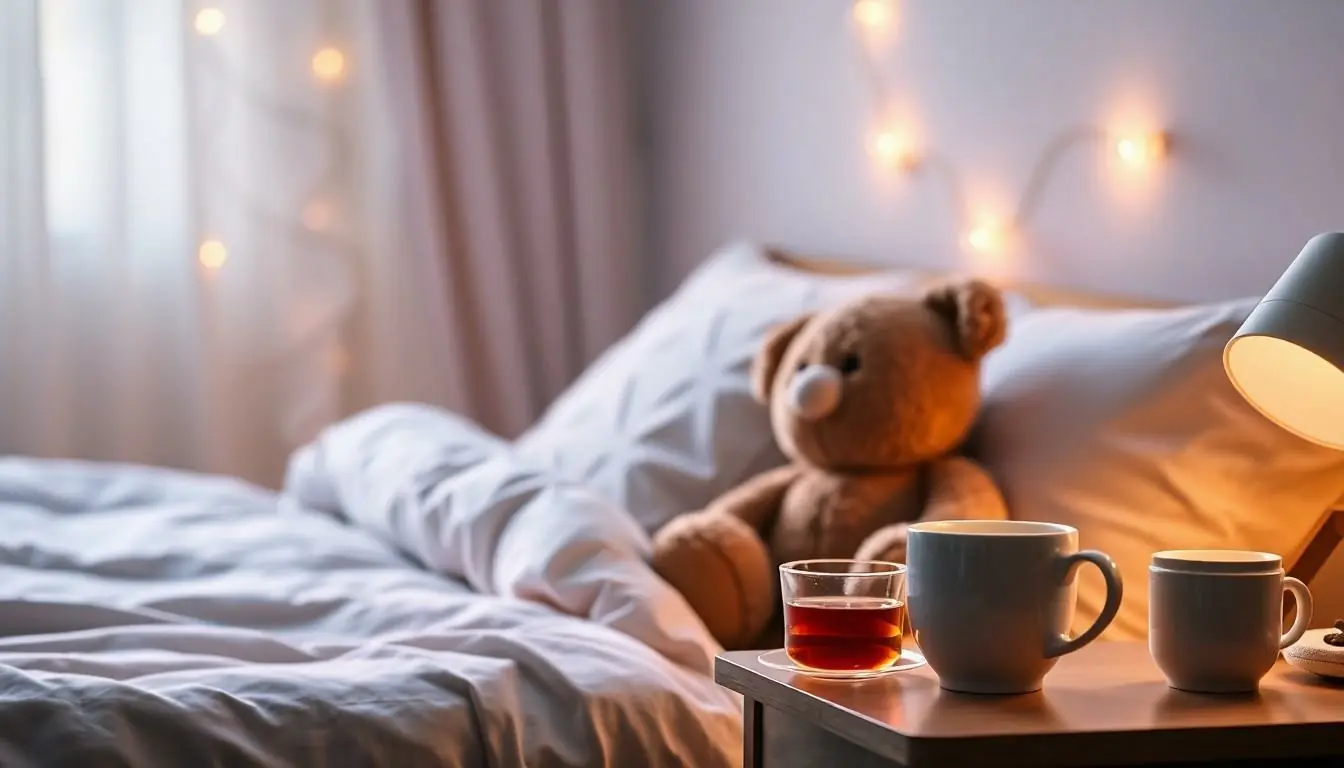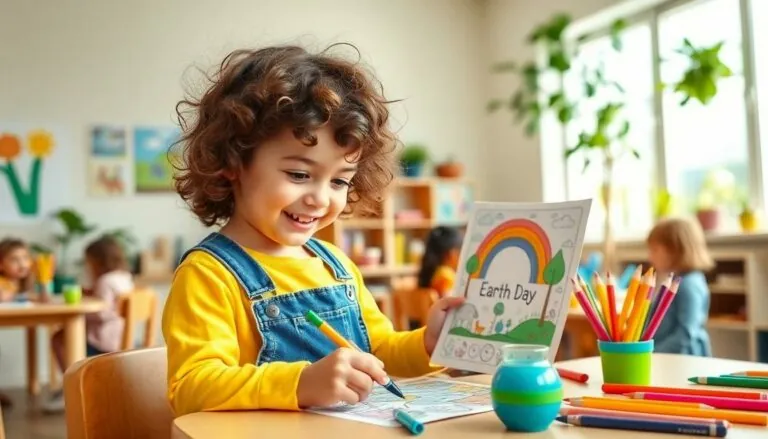Table of Contents
ToggleGetting kids to sleep can feel like trying to herd cats—chaotic and often fruitless. Parents everywhere know the struggle: bedtime battles, endless excuses, and the dreaded “I’m not tired!” chant. But what if there’s a way to help little ones drift off without relying on melatonin?
Understanding Kids Sleep Aid Without Melatonin
Parents often seek alternatives to melatonin for promoting better sleep in children. Various non-melatonin options exist and understanding their benefits can help families find effective solutions.
Importance of Sleep for Kids
Sleep plays a vital role in children’s growth and development. Quality sleep supports cognitive functions like memory, attention, and learning. Without adequate rest, kids may face difficulties with mood regulation and behavioral functioning. Research shows that children ages 3 to 5 require 10 to 13 hours of sleep, while those aged 6 to 13 need 9 to 11 hours. Establishing a consistent sleep routine encourages relaxation, promoting healthier sleep patterns.
Risks of Melatonin Use in Children
Melatonin, while popular, poses potential risks for younger individuals. Short-term use can lead to dependency, resulting in challenges when discontinuing its use. Some studies indicate that inappropriate dosages may disrupt hormonal development. Variability in melatonin products creates an additional concern, as some may contain unlisted ingredients. Furthermore, using melatonin can mask underlying sleep disorders, delaying necessary treatment. Prioritizing safe, non-hormonal sleep aids provides families with a better alternative for addressing children’s sleep difficulties.
Alternative Sleep Aids for Kids
Parents can explore multiple options for helping children sleep soundly without resorting to melatonin. These alternatives can promote relaxation and a restful night.
Herbal Remedies
Herbal remedies offer gentle assistance for sleep issues. Chamomile tea acts as a mild sedative, helping calm anxiety and promote relaxation. Lavender oil, known for its soothing properties, can be diffused in the child’s room or applied to bedding. Valerian root may also help children fall asleep faster and improve sleep quality. Always consult a healthcare professional before introducing new herbs to a child’s routine, as safety and dosage are critical for young ones.
Relaxation Techniques
Relaxation techniques play a vital role in establishing a bedtime routine. Deep breathing exercises can soothe children before sleep. Guided imagery helps visualize calming scenarios, diverting their minds from distractions. Progressive muscle relaxation involves tensing then releasing muscle groups, effectively leading to a relaxed state. Incorporating calming activities like reading or listening to soft music further fosters an environment conducive to sleep. Prioritizing these techniques may encourage children to unwind and signal that it’s time for rest.
Evaluating Effectiveness
Evaluating the effectiveness of sleep aids without melatonin involves assessing feedback from parents and considering scientific research. Both sources provide valuable insights into options available for children’s sleep challenges.
Parent Testimonials
Parents often share their experiences with non-melatonin sleep aids. Some report success with herbal remedies like chamomile tea, noting its calming effects on their children. Others mention relaxation techniques, such as guided imagery, helping create a peaceful bedtime routine. Positive responses to these approaches often highlight a reduction in bedtime battles. Many families note improved sleep quality and an easier transition to bedtime when these natural methods are routine.
Scientific Studies
Research supports the effectiveness of non-melatonin sleep aids, emphasizing their benefits for children’s sleep. Studies show that techniques like deep breathing can lower anxiety and promote relaxation. The American Academy of Pediatrics recommends methods such as progressive muscle relaxation for managing nighttime restlessness. Data from clinical trials often indicate that herbal options like valerian root can help children sleep better without causing dependency. Collectively, these findings reinforce the potential for safe, effective alternatives to melatonin in promoting better sleep for kids.
Recommended Products
Several effective sleep aids are available for children without relying on melatonin. Parents can explore various over-the-counter options and natural supplements that promote relaxation and better sleep.
Over-the-Counter Options
CalmAid is an age-appropriate option featuring a blend of vitamins and minerals designed to soothe children without sedating them. Another product, Sleepytime Extra tea, includes calming herbs like chamomile and spearmint, popular for their sleep-promoting effects. ZzzQuil’s Nature’s Sleep Aid offers a mix of botanical ingredients aimed at supporting restful sleep, catering to children with occasional nighttime restlessness. Safety remains paramount, so consulting a healthcare professional before introducing these options is crucial.
Natural Supplements
Chamomile extract stands out for its calming properties, making it a favored natural sleep remedy. Furthermore, valerian root is known for its effectiveness in promoting relaxation and easing anxiety, offering another choice for parents. Lavender oil, often used in aromatherapy, aids sleep quality and creates a calming atmosphere when diffused in a child’s room. Parents typically find these herbal options helpful in establishing a tranquil bedtime routine, encouraging their kids to wind down peacefully.
Safety Considerations
When considering kids’ sleep aids without melatonin, safety remains a top priority. Parents should be aware of potential side effects associated with herbal remedies and other non-hormonal options.
Potential Side Effects
Some herbs may cause allergic reactions in sensitive children, leading to rashes or digestive issues. Drowsiness can occur, impacting their alertness during the day. The interaction between herbal products and medications can also pose risks, making it crucial to monitor children’s responses. Parents should observe for any adverse reactions and discontinue use if necessary. Awareness of these potential side effects allows for a more informed choice in promoting quality sleep.
Consulting a Pediatrician
Consulting a pediatrician before introducing any sleep aids serves as an essential step. A healthcare provider can assess individual health conditions and guide on the safest options available. Professional insight can clarify which herbs or techniques are appropriate based on a child’s unique needs. Pediatricians also help identify underlying sleep disorders that may require specialized intervention. Making informed decisions in consultation with a pediatrician minimizes risks and enhances the overall safety of children’s sleep routines.
Conclusion
Finding effective sleep aids for children without relying on melatonin is crucial for their overall well-being. Parents can explore a range of herbal remedies and relaxation techniques that promote restful sleep. Incorporating calming activities into bedtime routines can significantly reduce resistance and improve sleep quality.
By prioritizing safe and natural alternatives, parents can support their children’s sleep needs while minimizing potential risks. Consulting with healthcare professionals ensures that chosen methods are appropriate and effective for each child’s unique situation. With the right approach, peaceful nights can become a reality for both children and parents alike.








